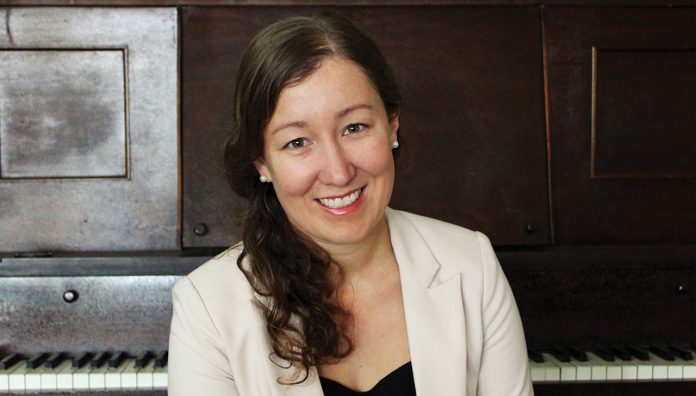Integrating pharmacists in primary care teams improves treatment outcomes and reduces the risk of medication errors, as two innovative programs in three regional centres in South Australia (SA) demonstrate.
Pharmacists in General Practice projects are underway in the Barossa towns of Tanunda, Kapunda and Angaston north-east of Adelaide, and Port Lincoln in the south. Meanwhile, Strathalbyn on the Fleurieu Peninsula was the first region in the state to take part in the Pharmacists in Aged Care project.
Funded by the Country SA Primary Health Network (PHN) and delivered in partnership with PSA, the projects started last year and are scheduled to run until June 2021.
PSA SA/NT Branch President Robyn Johns commended Country SA PHN for initiating the programs and working to incorporate pharmacists more comprehensively into the primary health care team.
‘PSA believes supporting pharmacists to spend more time in all healthcare settings is key to improving medicine safety and quality use of medicines,’ she said.
Country SA PHN Chief Executive Officer Kim Hosking also welcomed the move to embed pharmacists in general practices, which she said is ‘having a positive impact on the health of rural South Australians’.
Pharmacist Tanya Tran MPS spends four days a week in three Barossa general practices, providing a range of services including medication reviews, advice and education, and liaison between the general practice, hospitals and community pharmacy.
Ms Tran is a qualified diabetes educator, and was recently part of a trial to help people with diabetes manage their glucose, with positive feedback from participants.
She finds her involvement in the project highly rewarding and believes an important benefit is providing another set of eyes on medicine safety.
‘Working closely with the doctors in the practice and caring for patients has increased my clinical knowledge and ability,’ Ms Tran said.
‘I feel like I learn something every day I am at work and have found this immensely satisfying.’
At Port Lincoln’s Boston Bay Family Health Clinic, Kylie van Rooijen MPS works one and a half days a week in a position she describes as a ‘medication translator’. An important role is reconciling medication lists during the transition from hospital to the community.
‘By reconciling hospital discharge summaries with general practice health records and conducting patient consultations, I reduce the possibility of medication problems such as treatment courses not being completed or a person failing to restart taking a vital medication which they were taken off during their hospital stay,’ she said.
Ms van Rooijen is also training as a diabetes educator, and looks forward to supporting clinic patients with this complex condition, particularly pregnant women with gestational diabetes.
‘I have loved working as a pharmacist, but my passion has definitely been reignited through my involvement in this project,’ she said.
Innovations in aged care
Embedding pharmacists in aged care facilities is also helping to improve medicine safety.
This is particularly important given aged care residents have 76 prescriptions dispensed a year on average, PSA’s Robyn Johns said.
‘PSA’s own research found 98% of aged care residents have at least one medication-related problem and over half are exposed to at least one potentially inappropriate medicine,’ she said.
Pharmacist Stacey Putland MPS works one day a week at the Strathalbyn and District Aged Care Facility, where she provides services including medication reviews, advice to care staff and liaison with community pharmacy.
Generally, a pharmacist can provide a Residential Medication Management Review (RMMR) to a resident every two years, which can be a long time between assessments. Ms Putland said being on the spot means she can deliver a RMMR based on a resident’s need.
The recent interim report of the Royal Commission into Aged Care Quality and Safety highlighted concerns around the use of psychotropic medications in aged care. Ms Putland believes this is another healthcare challenge the program can help to address.
‘By being onsite, I can spend more time getting to know residents and their families, gaining a more in-depth understanding of their individual circumstances and can tailor my advice accordingly,’ she said.
‘The work I have been able to undertake through this program is incredibly rewarding … There has been great support in the community for this collaborative approach.’



 John Jones MPS, pharmacist immuniser and owner of My Community Pharmacy Shortland in Newcastle, NSW[/caption]
John Jones MPS, pharmacist immuniser and owner of My Community Pharmacy Shortland in Newcastle, NSW[/caption]


 Debbie Rigby FPS explaining how to correctly use different inhaler devices[/caption]
Debbie Rigby FPS explaining how to correctly use different inhaler devices[/caption]




 Professor Sepehr Shakib[/caption]
Professor Sepehr Shakib[/caption]

 Lee McLennan MPS[/caption]
Lee McLennan MPS[/caption]
 Dr Natalie Soulsby FPS, Adv Prac Pharm[/caption]
Dr Natalie Soulsby FPS, Adv Prac Pharm[/caption]
 Joanne Gross MPS[/caption]
Joanne Gross MPS[/caption]





